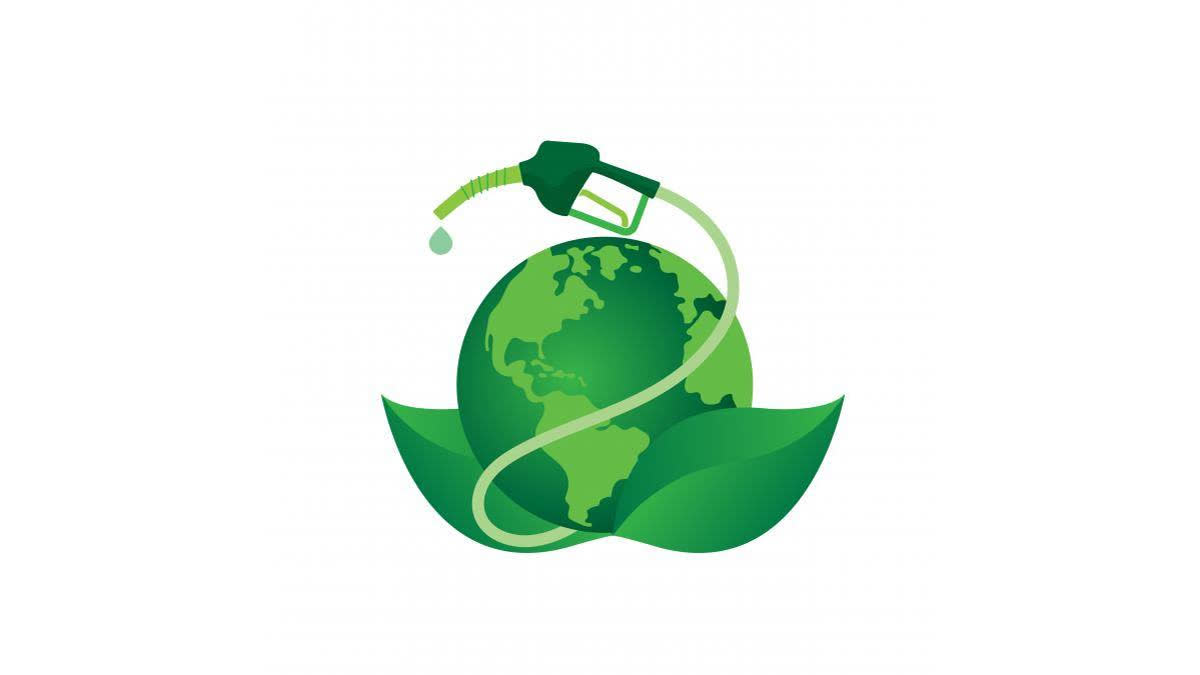New Delhi: World Biofuel Day is observed on August 10 to create awareness about the importance of biofuels made from biological materials like agricultural waste, animal waste, crops, or even grass. This day aims to highlight the importance of biofuels as a sustainable alternative to conventional fossil fuels in reducing greenhouse gas emissions, promoting energy security, and supporting rural development.
What Are Biofuels?
Biofuels are renewable energy sources derived from organic materials such as plant and animal waste. They are designed to replace or supplement traditional fossil fuels like petrol and diesel. Different types of biofuels include ethanol, biodiesel, and biogas. Biofuels offer several advantages, including lower greenhouse gas emissions, reduced dependence on oil imports, and the promotion of agricultural and rural development.
History & Significance
It was in 1893 when the German Inventor Sir Rudolf Diesel successfully operated his diesel engine with peanut oil. To commemorate the discovery, August 10 is observed every year as World Bio-Fuel Day. The discovery opened a new path to create a safer, renewable, and sustainable alternative to fossil fuels.
In India, the Ministry of Petroleum and Natural Gas (MoP&NG) and the Ministry of Environment, Forestry, and Climate Change (MoEFCC) started celebrating World Biofuel Day in 2015. Biofuels like biodiesel, bioethanol, and bio-CNG are increasingly being used in India.
A shift in global energy consumption patterns is the need of the hour following an increase in climate change. Biofuels not only help ensure a cleaner environment but also encourage the adoption of more sustainable technologies that can minimise any adverse effects of biofuels on the environment.
Theme for 2024
The theme for World Biofuel Day 2024 is “Sustainable Biofuels: Fueling a Greener Future”, emphasizing the importance of developing and utilizing biofuels sustainably to ensure long-term environmental benefits. It highlights the need for innovation in biofuel production technologies and the adoption of policies that promote their widespread use.
India Perspective
The Government of India has emphasized on achieving energy security in the country with a target of reducing import dependence including the usage of fossil fuels. The growing concern about the import dependence for fuel requirements in tandem with environmental pollution issues has driven the need for alternative fuels that have superior environmental benefits and are economically competitive with fossil fuels. This envisages a strategic role for biofuels in the Indian Energy basket. These resources include agriculture and forest residue, Municipal Solid Waste (MSW), cow dung etc. which can be used to convert into biofuels.
The Government is committed to utilising these to reduce our dependence on the import of crude oil, achieve foreign exchange savings, provide better remuneration for the farmers to double their income, address growing environmental issues owing to the use of fossil fuels and burning of biomass/ waste, address challenges of waste management/ agri-residues management in line with Swachh Bharat Abhiyan and promote “Make in India” campaign.
India is now the world’s third-largest producer and consumer of ethanol.
It was in 2018, that Prime Minister Narendra Modi released a National Policy on Biofuels which set blending targets for ethanol (20 percent blending by 2030) and biodiesel (5 percent by 2030).
As of November 30, 2023, India’s ethanol production capacity stands at approximately 1,380 crore litres. Of this, around 875 crore litres are derived from molasses, while about 505 crore litres come from grain sources.
Initiatives Taken
To augment ethanol supplies, the Government of India allowed procurement of ethanol produced from other non-food feedstock besides molasses, like cellulosic and lignocellulosic materials including petrochemical route. Oil PSUs have planned to establish 2G ethanol bio-refineries in various parts of the country.
Further, the Government has launched the “Pradhan Mantri JI-VAN (Jaiv Indhan- Vatavaran Anukool fasal awashesh Nivaran) Yojana” for providing viability gap funding to provide initial thrust to create 2G ethanol capacity in the country and attract investment in this sector. In this scheme, financial support to twelve Integrated Bio-ethanol Projects using lignocellulosic biomass & other renewable feedstock with a total financial outlay of Rs 1969.50 crore for the period 2018-19 to 2023-24.



